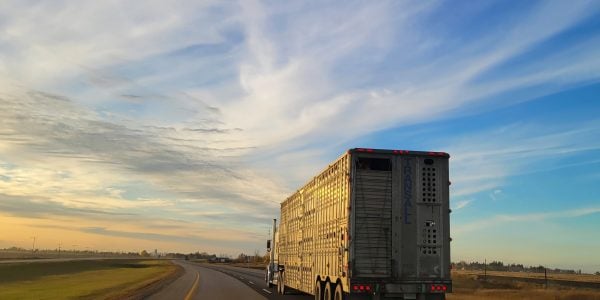On Monday, U.S. Secretary of Agriculture Tom Vilsack Announces final language for “Made in America” label requirements It is relevant for some products containing beef and pork.
Although the rule is voluntary, it is as restrictive as or more restrictive than the mandatory Country of Origin Labeling (mCOOL) requirements that have sparked a long-running trade dispute between Canada and the U.S. When it goes into effect on Jan. 1, 2026, only products that were born, raised or slaughtered in the U.S. will be able to bear the label.
Dennis Laycraft, vice president of the Canadian Cattlemen’s Association, says MCOOL is costing Canada’s cattle and hog industries about $1 billion a year through quarantine costs, increased transportation costs, reduced efficiency and discounts on livestock.
Raycraft said the self-imposed restrictions, if implemented, could be more onerous than mCOOL. (The interview continues below)
“Manitoba exports three million hogs to the United States each year, plus more than $400 million worth of Manitoba pork products,” said Rick Plage, president of the Manitoba Pork Association. “Like the original mandatory policies that were successfully challenged at the World Trade Organization, these changes will have a significant impact on trade in the integrated Canadian-U.S. market. We are extremely disappointed that the final rule did not take into account the concerns expressed by Canada.”
Agriculture and Food Minister Laurence MacAulay and Trade Minister Mary Ng issued a joint statement in reaction to the rules.
“The Canadian and U.S. meat and livestock sectors work closely together to support food security and local and regional food systems. Our essential relationship ensures that producers, processors and consumers on both sides of the border benefit from efficient, stable and competitive markets while ensuring a steady supply of high-quality products.”
“Canada remains concerned about any measures that could cause disruptions to North America’s highly integrated meat and livestock supply chains.”
“We are disappointed that the final rule does not appear to take into account the concerns we have continually raised about our unique and important trading relationship. Canada intends to raise these issues at a tripartite meeting of agriculture ministers with the United States and Mexico scheduled to take place in Colorado later this month.”
Unlike mCOOL, Raycraft says the WTO’s trade dispute mechanism may not work in this situation. The plan now, he says, is to work with U.S. and Mexican counterparts in the industry to find a solution. Some packagers may choose not to use labels at all, but the hope is to develop one based on the CODEX rules system for the international market.
subscribe: Apple Podcasts | Spotify | | All Podcasts







